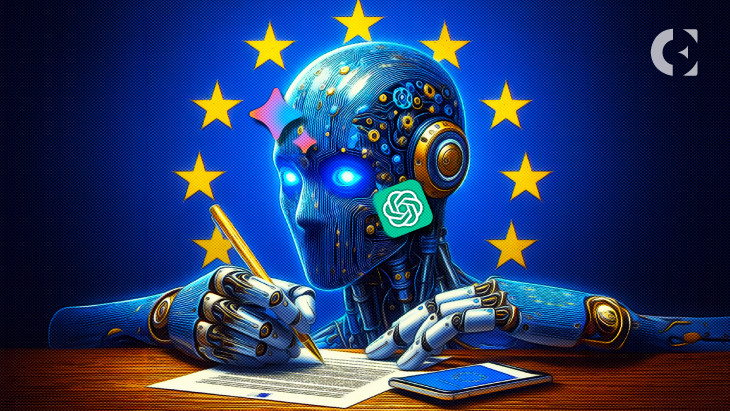- EU participants have agreed to a set of controls for generative AI tools like ChatGPT and Bard.
- The group came closer to a formal agreement that would lead to the establishment of an AI Act.
- Policymakers are finalizing the language and trying to get the Act passed before the European elections in June 2024.
Delegates from the European Commission, the European Parliament, and 27 member countries are close to an agreement over a wide-reaching regulation of artificial intelligence in the Western world. Following an elongated meeting, participants have agreed to a set of controls for generative AI tools like OpenAI Inc.’s ChatGPT and Google’s Bard.
At the end of the meeting, which lasted several hours, the group came closer to a formal agreement that would lead to the establishment of a piece of legislation known as the AI Act, according to some of the participants who chose to remain anonymous.
Bloomberg reported that an AI Act would set the tone for regulating generative AI tools like ChatGPT and Bard. It would mark a landmark policy for overseeing the AI industry in the absence of any meaningful action by the U.S. Congress. The report noted that the AI Act has been in the works for several months, and policymakers are finalizing the language and trying to get it passed before the European elections in June 2024.
AI regulation has become contentious, considering how extensive last Wednesday’s discussion went, according to Bloomberg. World leaders and technology executives remain divided on how to regulate the AI industry as generative tools become more popular. Reports claimed that finding a balance between protecting local AI startups like France’s Mistral AI and Germany’s Aleph Alpha and the potential risks of the technology has been challenging for the EU.
Nevertheless, Bloomberg added that several EU officials believe the participating groups will soon reach a deal on the finalization of the AI Act. The EU policymakers reportedly proposed a plan that requires AI developers to maintain information on how they train their models, summarize the copyrighted material used, and label AI-generated content. They also intend to establish a code of conduct for participants to guide them against “systemic risks.”
Disclaimer: The information presented in this article is for informational and educational purposes only. The article does not constitute financial advice or advice of any kind. Coin Edition is not responsible for any losses incurred as a result of the utilization of content, products, or services mentioned. Readers are advised to exercise caution before taking any action related to the company.







